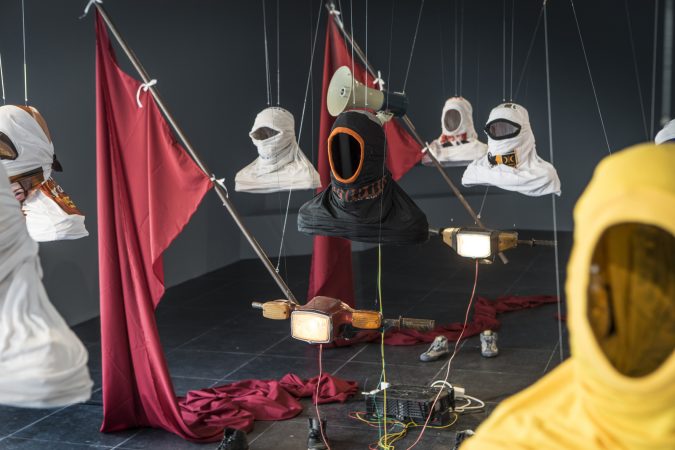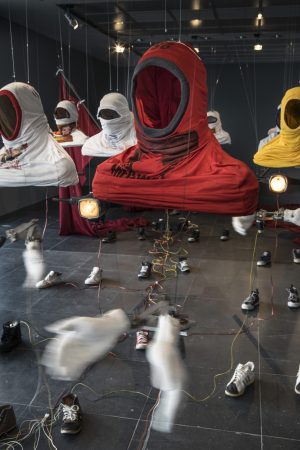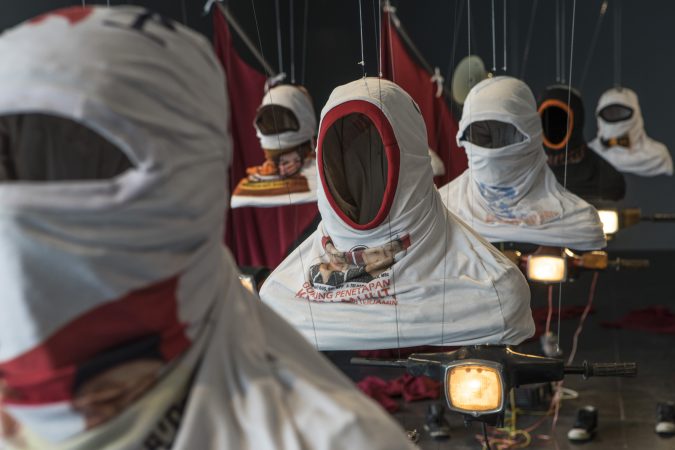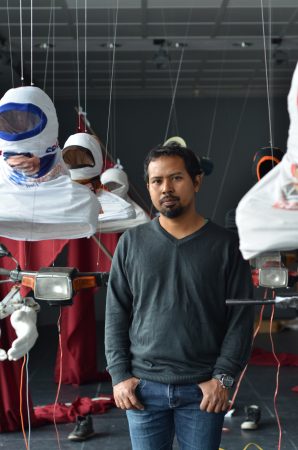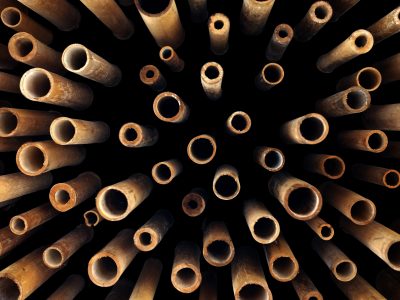Roots – Jompet Kuswidananto
born 1976, lives and works in Bali und Yogyakarta (ID)
POWER UNIT, 2015
Fabrics, mechanics, wooden sticks, lights, shoes, resin
Courtesy the artist
The installation “Power unit” is a kinetic work and theatrical presentation. Using motion triggered sensors. Jompet Kuswidananto encourages the audience to engage with his work, to reflect on the possibilities and processes of mediation. The installation is a staged public demonstration or political rally consisting of the artist’s ‘mechanical figures’, a series of imaginary bodies equipped with banners, motorcycles or clapping hands.
As with most of his other large-scale works of the past decade, “Power Unit” is a kind of phantasmagorical scene. ‘Hollow figures’ are recognisable by their symbols which frame or stand in for an absence. In his previous work, this implies an absence of a coherent Indonesian, and more specifically Javanese identity. Jompet reflects on Javanese cultural ‘syncreticism’, which he likens to a naturalised strategy of accepting and reconciling incoming cultures and beliefs. For Jompet, implicit in such an un-reflexive process of pacifying and overcoming contradictions is a collective and forced act of forgetting, a kind of collective amnesia. A key element of his artistic practice then are strategies of excavation to recuperate histories that perhaps have been neglected and marginalised in official narratives. This of course has implications regarding Indonesia’s colonial past. It also speaks to the official narratives carefully crafted and strictly guarded by the authoritarian regime of the New Order (1967-1998).
“Power unit” is Jompet’s critical reflection on the sweeping changes to public political and social discourse since the fall of the New Order in 1998. The transition to democracy has not been without its problems or tensions. While it is easier to organise and mobilise the masses in a post-New Order political environment and an era of increased civil freedoms, the concept and definition of what a democracy or a democratic society is, remains highly contentious. Many repressed and subverted voices have reasserted their influence, staking their claims in the renewal of the country. In this regard, Jompet further accentuates how new patterns of group affiliation and images of personal identity have influenced and transformed political behaviour in Indonesia over the last decade. How do words help to bring people together around an idea? With social media, everyone has the right and opportunity and potential to gain supporters, galvanise and mobilise people into action. The critical question for the artist is what really is being produced in this process.
Jompet emerged on the scene of experimental music and contemporary art and theatre in Indonesia in the late 1990s. At that time Indonesia was experiencing a significant growth in independent art spaces, collectives and community-based initiatives, many of which focused on new media art. He has collaborated on several international projects exploring the possibilities of hybrid technologies and possibilities of presentation and mediation. He insists on using recycled and low technologies, which have long been part of a large and dynamic informal economic sector in Indonesia.

